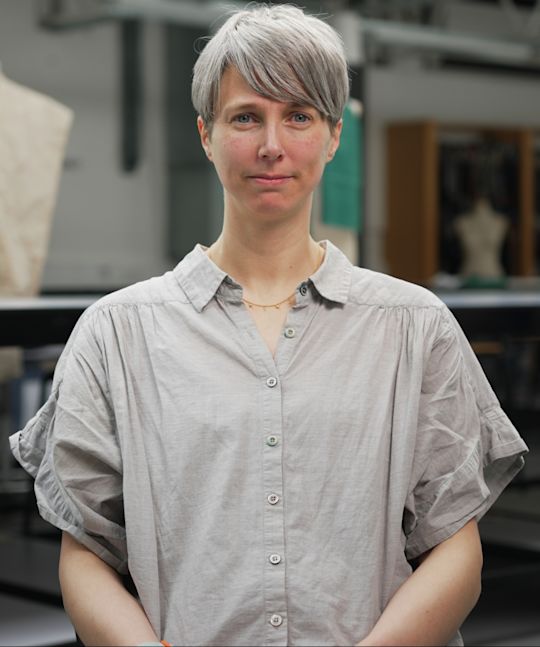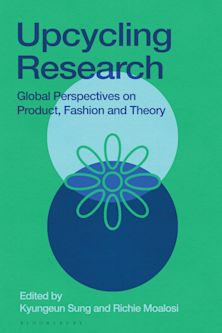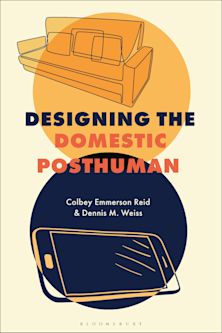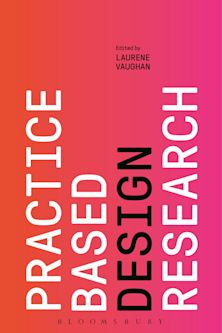Select a format
Design Roots
Culturally Significant Designs, Products and Practices
Design Roots
Culturally Significant Designs, Products and Practices
- Delivery and returns info
-
Free CA delivery on orders $40 or over
Description
Design Roots provides a comprehensive review of culturally significant designs, products and practices which are rooted to particular communities through making tradition and a sense of place. Many rich traditional practices associated with community, tacit knowledge and culture are being rapidly lost due to globalisation and urbanisation. Yet they have much to offer for the future in terms of sustainability, identity, wellbeing and new opportunities in design.
This book considers the creative roots, the place-based ecologies, and deep understandings of cultural significance, not only in terms of history and tradition but also in terms of locale, social interactions, innovation, and change for the sustainment of culturally significant material productions. Importantly, these are not locked in time by sentimentality and nostalgia but are evolving, innovative, and adaptive to new technologies and changing circumstances.
Contributing authors explore the historical roots of culturally significant designs, products and practices, emerging directions, amateur endeavours, enterprise models, business opportunities and the changing role and contribution of design in the creation of material cultures of significance, meaning and value.
An international perspective is provided through case studies and research from North and South America, Africa, Europe, Asia and Australasia, with examples including Aran jumper production in Northern Ireland, weaving in Thailand, Iranian housing design, Brazilian street design and digital crafting in the United Kingdom.
Table of Contents
Stuart Walker - Lancaster University, UK
Part I Introduction: Culturally Significant Designs, Products and Practices
Martyn Evans - Manchester Metropolitan University, UK
Chapter 1: Creative Ecologies: Contextualising Culturally Significant Designs, Products and Practices
Jeyon Jung and Stuart Walker - Lancaster University, UK
Chapter 2: Forging New Futures: Cultural Significance, Revitalisation and Authenticity
Amy Twigger Holroyd - Nottingham Trent University, UK
Chapter 3: Culturally Significant Artefacts and Their Relationship to Tradition and Sustainability
Stuart Walker - Lancaster University, UK
Chapter 4: Making and its Cultural Ecological Foundations
Patrick Dillon - University of Exeter, UK
Part II Introduction: Authenticity and Tradition in Material Culture
Amy Twigger Holroyd - Nottingham Trent University, UK
Chapter 5: The Aran Jumper
Siún Carden - University of the Highlands and Islands, UK
Chapter 6: Chok Weaving and Textile Enterprises from Northern Thailand
Disaya Chudasri - Lancaster University, UK
Chapter 7: Oltu-Stone Prayer Beads: A Journey into the Art of Carving Tasbih
Hazal Gümüs Çiftçi - Lancaster University, UK
Chapter 8: The Mian Sara: Traditional Iranian Homes and Sustainability
Poone Yazdanpanah and Stuart Walker - Lancaster University, UK
Chapter 9: IKEA: Mass-produced National Design Identity
Sara S. Kristoffersson - Konstfack University College, Sweden
Part III Introduction: Revitalisation by Design
Tom Cassidy - University of Leeds, UK
Chapter 10: Culture as a Resource for a Sustainable Future in Indigenous Communities: Strengthening Atikamekw Identity and Economics through Design
Anne Marchand, Karine Awashish, Christian Coocoo, Solen Roth, Renata Marques Leitão, Cédric Sportes and Caoimhe Isha Beaulé - University of Montreal, Canada
Chapter 11: Transforming Tradition in Indonesia: A Method for Maintaining Tradition in a Craft and Design Context
Adhi Nugraha - Aalto University, Finland
Chapter 12: New Translations of South Korean Patterns
Meong Jin Shin - University of Leeds, UK
Chapter 13: Revitalisation by Design
Sebastian Cox - Sebastian Cox Ltd, UK
Chapter 14: New Caribbean Design: Revitalising Place-based Products
Patty Johnson - Patty Johnson Design, Canada
Part IV Introduction: Enterprise, Policy and Education for Positive Development
Jeyon Jung - Lancaster University, UK
Chapter 15: Sustaining Culturally Significant Designs, Products and Practices: Lessons from the Hohokam
Jacques Giard - Arizona State University, USA
Chapter 16: Accidents, Intentions, Movements and Makers: Artisan Economy in Portland, Oregon, USA
Steven Marotta, Austin Cummins and Charles Heying, Portland State University, USA
Chapter 17: The Role of Higher Education in Sustaining Culturally Significant Crafts in Estonia
Sirpa Kokko - University of Helsinki, Finland
Chapter 18: The Challenge of Intellectual Property Rights for Culturally Significant Patterns, Products and Processes
Tom Cassidy and Tracy Diane Cassidy - University of Leeds, UK
Chapter 19: The Case of the City Different: The Intersection of the Museum, the Artist and the Marketplace
Marsha C. Bol - Carnegie Museum of Natural History, USA
Part V Introduction: Design Futures
Stuart Walker and Martyn Evans - Lancaster University, UK and Manchester Metropolitan University, UK
Chapter 20: Research Approaches for Culturally Significant Design
Tom Cassidy - University of Leeds, UK
Chapter 21: Digital Transformations, Amateur Making and the Revitalisation of Traditional Textile Crafts
Amy Twigger Holroyd - Nottingham Trent University, UK
Chapter 22: Design for Social Innovators
Anna Meroni and Daniela Selloni - Politechnico di Milano, Italy
Chapter 23: Integrated Scales of Design and Production for Sustainability with a Focus on Graduate Design Work in Lighting
Çagla Dogan - Middle Eastern Technical University, Turkey
Chapter 24: Designing Authentic Brands: How Designerly Approaches can Craft Authentic Brand Identity
Emma Murphy - Glasgow School of Art, UK
Chapter 25: Strategies for Revitalisation of Culturally Significant Designs, Products and Practices
Martyn Evans, Amy Twigger Holroyd, Stuart Walker, Tom Cassidy and Jeyon Jung - Manchester Metropolitan University, UK, Nottingham Trent University, UK, Lancaster University, UK and University of Leeds, UK
Endmatter
Index
Product details

| Published | Feb 08 2018 |
|---|---|
| Format | Paperback |
| Edition | 1st |
| Extent | 400 |
| ISBN | 9781474241809 |
| Imprint | Bloomsbury Academic |
| Illustrations | 40 bw illus |
| Dimensions | 244 x 169 mm |
| Publisher | Bloomsbury Publishing |
Reviews

ONLINE RESOURCES
Bloomsbury Collections
This book is available on Bloomsbury Collections where your library has access.




































